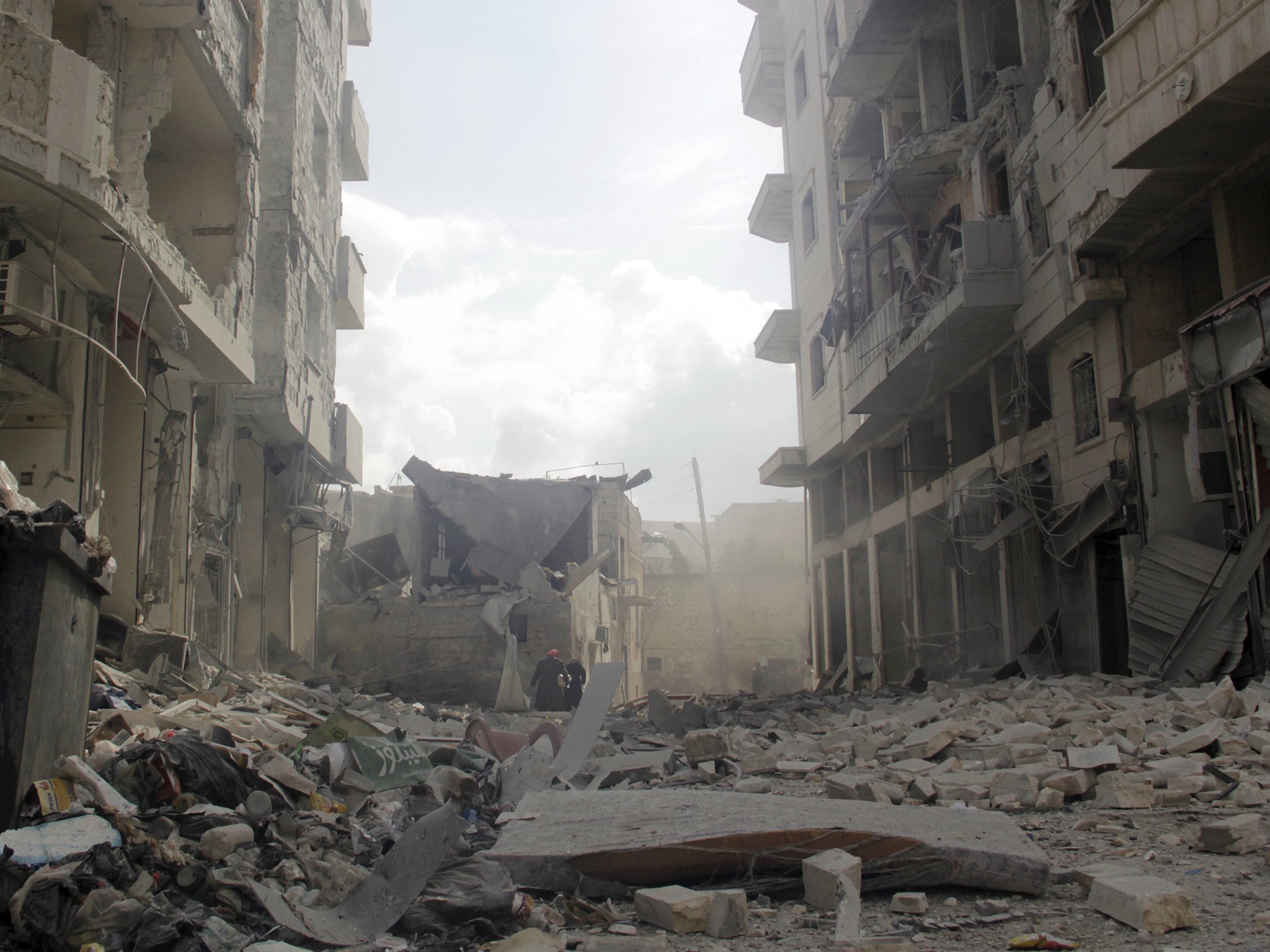I’m a doctor in Syria – and after 10 years of war I still dread the fall of bombs and the damage they bring
Being a medical professional in the country is a terrifying experience. Working among rubble, at risk of imminent shelling, and treating patients with horrific injuries is part of daily life

I remember the night, working as a surgeon in a makeshift hospital in Aleppo, when the bombs started to fall. This was in 2012, during the height of Syria’s conflict, and the city was in a state of constant siege. My team and I were already treating patients in the hospital. And then, suddenly, we were surrounded by intense shelling.
After the bombing, we went out to the street. People were like ghosts in the night. Mothers were carrying their children and running. They didn’t know where they were going. They were just running. It was a very scary situation. I will never forget that day.
I have many memories like this, having worked as a surgeon in Syria for nearly a decade. Ten years of systematic attacks on healthcare has been devastating for both civilians and the brave medical staff working to save lives. Being a medical professional in Syria is a terrifying experience. Working among rubble, at risk of imminent shelling, and treating patients with horrific injuries is part of daily life.
The moments I dread the most are after shelling has finished. When the planes stop throwing their bombs, there is a disconcerting moment of quiet. And then the patients begin to arrive. We are then treating a huge number of injuries, as people are rushed to the hospitals. We have to make do with the most basic facilities and medical equipment. Patients are lying on the floor. Wherever you walk, there will be people with horrific injuries, with family members by their side.
We used to refer to this situation as “a toilet with no water”. Everybody would be looking for bandages, serums, adrenaline and anesthesiologists because a patient would be unconscious or about to pass away. These moments last from 30 minutes to one hour. The situation cannot get any worse. You feel helpless because the number of injuries is huge, yet I am just one surgeon with a few medical staff.
Today I am working in northern Aleppo, having fled my home 12 times already. There are only a few hospitals here, but all of them and the brave medical staff working inside, are constant targets.
Many hospitals are constructed inside caves in the mountains to try and protect them from the shelling. However, this doesn’t protect them. One of the hospitals I worked in was destroyed in 2019.
Medical facilities are no longer deemed to be safe places. As a result, residents avoid coming because they don’t want to put themselves at risk. They are afraid of receiving lifesaving healthcare.
A decade on, I can only imagine the scale of the psychological impact of the war. We are only a small team of medical staff so when we lose someone to shelling it affects us all deeply. We know that we might be in their shoes at any time. We feel very scared when a plane passes above us in our workplace.
A decade of unrelenting attacks have turned hospitals and clinics from safe havens into places that people now fear the most. The international community needs to be aware of the risks that doctors and nurses in Syria are still taking today to save lives on a daily basis. The war in Syria must not be forgotten.
Dr Nabeel Hassan works as a doctor for Syria Relief and Development, a partner of the International Rescue Committee, providing essential healthcare in Syria. The name of the author has been changed to protect his identity
Join our commenting forum
Join thought-provoking conversations, follow other Independent readers and see their replies
Comments


Bookmark popover
Removed from bookmarks